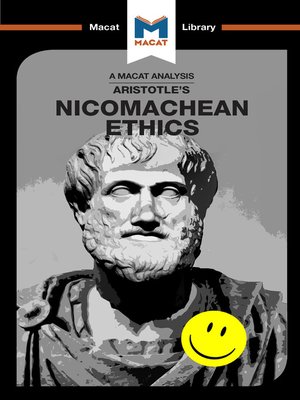
Sign up to save your library
With an OverDrive account, you can save your favorite libraries for at-a-glance information about availability. Find out more about OverDrive accounts.
Find this title in Libby, the library reading app by OverDrive.



Search for a digital library with this title
Title found at these libraries:
| Library Name | Distance |
|---|---|
| Loading... |
Aristotle, a student of Plato, wrote Nicomachean Ethics in 350 BCE, in a time of extraordinary intellectual development. Over two millennia later, his thorough exploration of virtue, reason, and the ultimate human good still forms the basis of the values at the heart of Western civilization. According to Aristotle, the ultimate human good is eudaimonia, or happiness, which comes from a life of virtuous action. He argues that virtues like justice, restraint, and practical wisdom cannot simply be taught but must be developed over time by cultivating virtuous habits, which can be developed by using practical wisdom and recognizing the desirable middle ground between extremes of human behavior.







